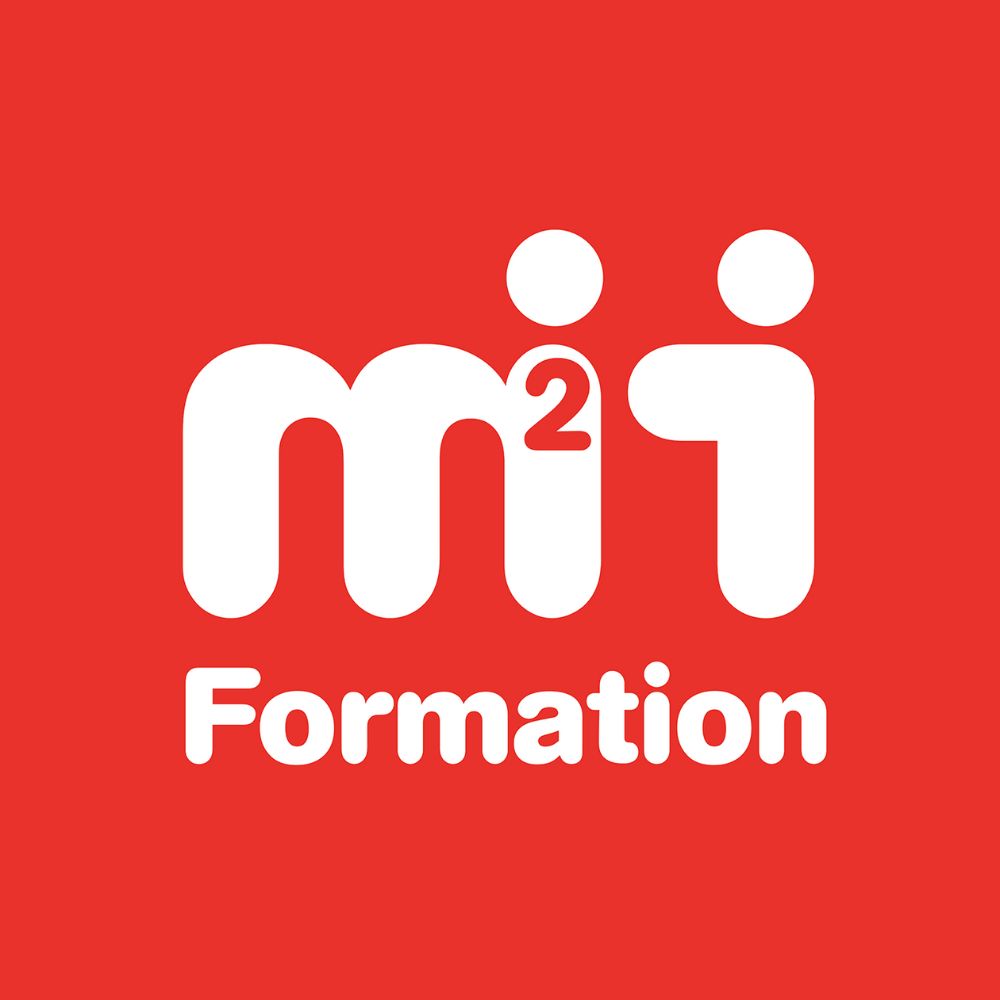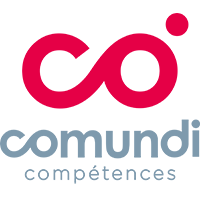Formation BPMN 2.0 Foundation Certification + 2 days of support
Public admis
- Salarié en Poste
- Demandeur d'emploi
- Entreprise
- Etudiant
Financements
Eligible CPF Votre OPCO Financement personnelObjectifs de la formation
Concretely, this training on the BPMN 2.0 standard will provide you with the knowledge and skills necessary to :
- Discover the possibilities offered by the BPMN 2.0 standard
- Learn a methodology as well as "best practices" in writing processes on BPMN 2.0
- Put into practice the elements described in the course on modeling software among the market standards: Bizagi Modeler, ARIS Designer, MEGA, Entreprise Architect
- To prepare and to pass the BPMN 2.0 Foundation certification
| Tarif |
A partir de 3 890,00 € |
| Durée | 7 jours (49h) |
| Modes |
|
| Sessions | |
| Lieux | Partout en France |
| Tarif |
A partir de 3 890,00 € |
| Durée | 7 jours (49h) |
| Modes |
|
| Sessions | |
| Lieux | Partout en France |
Description
PLB Consultant, in partnership with BPM CyT, a specialist company in BPM issues, has set up a certifying training on BPMN 2.0.
This is a unique certification in France and abroad, very appreciated by most companies and organizations.
This training, a slight different version from the original GBPE-US, includes 2 full days of support with our expert trainer.
These extra days, to be scheduled with the trainer, take place at the end of your 5-day training course, once the certification exam has been taken. The first day is devoted to a specific support on issues particular to your organization - business or administration. The second day allows to grasp the challenge, the possibilities and the effects of processes execution and automation - a BPMS coupled with RPA, and possibly other technologies like AI - and Process Mining.
The business process modeling standard BPMN 2.0 (Business Process Model & Notation) has become essential for organizations - companies and administrations - particularly in the context of their digital transformation. These organizations therefore require tools to improve the understanding and description of their business processes, and their optimization.
As part of their BPM (Business Process Management) projects, companies use modelers - internally -, or external service providers. Which tool is today available for customers to check the know-how of these modelers and the quality of the models provided? A question often unanswered.
The OMG (Object Management Group), the institution responsible for the BPM discipline has set up a certification on BPM, but unfortunately has not provided for certification on the BPMN 2 standard, which companies absolutely need today to assess their providers.
We invite our French customers to register to the Certification BPMN 2.0 Foundation course (GBPE), which is its equivalent but adapted to their mother tongue.
Programme
Modeling - level 1
Concepts and definitionsBPMN 2.0 Objectives
The 2 main models of BPMN 2.0: orchestrations and collaborations
Control flow patterns
Token principle
BPMN 2.0 building blocks
Modeling tool overview
Bizagi ModelerWorkshopModeling of a process responding to a usual business problemModeling - level 2
Types of tasks (user, manual, script, service, send, receive)Business rules and business rule tasks
DMN (Decision Model & Notation) 1.1 overview
Data gateways
Concept of sub-process
Sub-processes embedded
Types of events: start, end, intermediateWorkshopModeling of a first batch of processes taking into account these modeling elements
Modeling - level 2 (follow-up)
Events tableStart events
End events
Signal events
Modeling - level 3
Intermediate events: in the main process, or at a task or sub-process boundaryIntermediate events at the boundary: interruptive and non-interruptive
Error events
Escalation events
Compensation events
Link eventsWorkshopModeling of a second batch of processes taking into account these modeling elements
Modeling - level 4
Specific cases of embedded sub-processes: transaction, event, ad-hocReusable sub-processes: Calls activities
Event gateways
Complex gateway
Repetitive tasks and sub-processes
Multi-instance pools
Modeling - level 5
Intermediate events at the boundary: the difference between those at a task boundary and those at a sub-process boundaryIntermediate events at the boundary: the difference between those generated inside a sub-process, at the boundary, and outside the sub-process
Intermediate events at the boundary: the difference between those which are only interruptive, interruptive and non-interruptive, and those which are neither interruptive nor non-interruptive
Tokens: elements creating tokens, elements consuming tokens, elements which neither create nor consume tokensWorkshopModeling of a third batch of processes taking into account these modeling elements
Collaborations
Types of messages exchangedCollaboration modelingWorkshopModeling of a collaboration
Modeling methodology - level 1
Scope definitionStakeholders identification (lanes)
Start events identification
End events identification
Tasks type and wording
Use of links
Checking the tokens flow
Use of artefactsWorkshopApplication of these good practices to a business problem
Modeling methodology - level 2
The Process Owner, a manager for each processThe CoE (Center of Excellence, or BPM Department)
Breakdown of an overly complex process
Process / sub-process hierarchy
Approach to process description: orchestration or collaboration?WorkshopRevision of previously written processes to take into account these best practices
Preparation for the BPMN 2.0 Foundation certfication exam
Comparison of incomplete models, too extensive, difficult to read or even false, with models that exhaustively meet the BPMN standard and good modeling practices.Correction of BPMN models
Preparation for the BPMN 2.0 Foundation certification exam
Taking the BPMN 2.0 Foundation certification exam
MCQModeling
Prérequis
Public
Ces formations pourraient vous intéresser
Objectifs de la formation
À l'issue de cette formation officielle Citrix Virtual Apps & Desktops, vous aurez acquis les connaissances et les compétences nécessaires pour :
- Décrire une architecture et les communications de Citrix Cloud
- Comprendre les différences entre Citrix Virtual Apps & Desktops On-Premises et XenApp et XenDesktop Services dans le Cloud
- Décrire les services et les ressources disponibles à travers Citrix Cloud
- Installer, configurer et gérer Citrix Cloud Connectors
- Mettre à disposition des applications et des bureaux sur des ressources On-Premises
- Comprendre l’utilisation de StoreFront et de NetScaler Gateway avec Citrix Cloud
- Migrer une architecture Citrix Virtual Apps & Desktops On-Premises vers une plateforme Citrix Cloud
- Comprendre les avantages à migrer des ressources vers un cloud public
| Tarif |
A partir de 2 700,00 € |
| Durée |
3j / 21h |
| Modes |
|
Objectifs de la formation
A l'issue de cette formation, vous serez capable de :
- Expérimenter les options de calcul et de stockage pour les workloads de Data Engineering dans Azure
- Exécuter des requêtes interactives à l'aide de pools SQL sans serveur
- Effectuer l'exploration et la transformation des données dans Azure Databricks
- Explorer, transformer et charger des données dans le Data Warehouse à l'aide d'Apache Spark
- Ingérer et charger des données dans le Data Warehouse
- Transformer les données avec Azure Data Factory ou Azure Synapse Pipelines
- Intégrer les données à partir des notebooks avec Azure Data Factory ou Azure Synapse Pipelines
- Prendre en charge le traitement analytique transactionnel hybride (HTAP) avec Azure Synapse Link
- Assurer la sécurité end-to-end avec Azure Synapse Analytics
- Effectuer un traitement de flux en temps réel avec Stream Analytics
- Créer une solution de traitement de flux avec Event Hubs et Azure Databricks.
| Tarif |
A partir de 2 680,00 € |
| Durée |
4j / 28h |
| Modes |
|
Objectifs de la formation
Plus concrètement, à l'issue de cette formation SAFe for Teams Practioner vous aurez acquis les connaissances et les compétences nécessaires pour :
- Comprendre le fonctionnement et les interactions d’une équipe Agile dans le contexte d’un Agile Release Train (ART) ;
- Savoir planifier et exécuter des itérations et des Program Increment (PI) ;
- Comprendre comment appliquer les principes SAFe® pour faire évoluer les livraisons Lean-Agile ;
- Etre en mesure d’améliorer en continue l’ART ;
- Préparer l’examen « SAFe® Practitioner (SP) ».
| Tarif |
A partir de 1 930,00 € |
| Durée |
2j / 14h |
| Modes |
|
Formation IBM System z - Présentation technique de l'évolution du Matériel et du Logiciel sur le Mainframe
Proposé par PLB CONSULTANTObjectifs de la formation
À l'issue de cette formation IBM System z, vous aurez acquis les connaissances et compétences nécessaires pour :
- Décrire et catégoriser les divers serveurs que l'on peut trouver dans les data centers
- Identifier et décrire les charges de travail qui sont couramment utilisées pour les mainframes et les serveurs distributés
-
Décrire un data center typique avec des plateformes de serveurs différentes :
Pourquoi autant de serveurs
Les préoccupations actuelles et des considérations
Les actions futures possibles - Identifier quand le premier mainframe IBM pour un usage général a été présenté
- Décrire les nombreuses stratégies clés informatiques sur le mainframe présentées dans les années 2000
- Identifier les tendances actuelles et futures des data centers
- Décrire pourquoi des systèmes plus intelligents sont nécessaires pour répondre aux besoins futurs
- Présenter le système zEnterprise et expliquer comment il peut s'appliquer aux besoins actuels et futurs
- Décrire les fonctions de base, les caractéristiques et la terminologie des serveurs System z
- Identifier et lister les différents serveurs System z et les modèles matériels, depuis le serveur zSeries server jusqu'au dernier zEnterprise EC12
- Identifier le nombre de processeurs (CP) et lister les processeurs spécialisés disponibles pour les différents serveurs System z
- Faire la liste des performances relatives des serveurs System z récents par rapport aux précédents serveurs
- Identifier et lister les serveurs mainframe IBM prenant en charge plusieurs sous-systèmes de canaux et architecture z
- Identifier les composants clés du système zEnterprise et leur intérêt
-
Décrire et comparer les divers composants System z :
Frame layout et utilisation de cage
Modèles de serveurs, livres, mémoire et structure du cache
Performance et millions of service units (MSUs) -
Décrire et comparer les infrastructures I/O et l'utilisateur du processeur des mainframes de zEC12 à z10 :
cages I/O , tiroirs et technologie utilisée
PU, cache, et réserver la connectivité en fan-out - Décrire comment et quels composants phyisques System z sont utilisés lors du traitement des instructions et la réalisation d'opérations I/O
- Identifier les options de Capacity on Demand (CoD) sur System z disponibles pour les pannes planifiées et non planifiées
- Décrire l'architecture de provisionnement de CoD et quels serveurs peuvent l'utiliser
- Décrire comment le partitionnement logique est utilisé, les affectations de ressources et les activités d'initialisation
- Décrire les canaux, leur usage et l'affection de CHPID
- Décrire le but et l'utilisation de HCD
-
Identifier les systèmes d'exploitation des mainframes et les serveurs mainframe supportés :
Décrire comment les OS de mainframe ont évolué des serveurs System 360 vers le serveur zEC12 actuel
Lister quelques-unes des améliorations principales fournies par les récentes versions de z/OS et quels serveurs peuvent les utiliser
Expliquer la coexistence de versions de z/OS et la stratégie de support
Décrire les diverses files d'attente qui sont utilisées pour distribuer le travail -
Décrire la différence entre une base et Parallel Sysplex :
Lister les caractéristiques principales de Parallel Sysplex
Décrire le but et l'utilisation des possibilités de couplage
Identifier les différences entre les configurations suivantes sysplex : MULTISYSTEM, MONOPLEX et XCFLOCAL -
Identifier et décrire les améliorations principales fournies par le logiciel System z et la plateforme matériel :
Architecture 64-bit, IRD, HiperSockets, MLCSS, MIDAW
Ensembles de sous-canaux multiples, zHPF, CPM, HiperDispatch, zDAC
TEF, RI, DAT2, Flash Express, zAware, RoCE, zEDC et calcul autonome - Identifier les modes d'architecture des processeurs et les implémentations d'adressage supportées : bimodal, trimodal, espaces d'addresse, adressage virtuel et usage du stockage
- Décrire les diverses files d'attente qui sont utilisées pour distribuer le travail
- Utiliser les commandes système qui affichent les espaces d'adresses actives et identifient leurs statuts actuels
- Décrire les hauts niveaux d'intéraction entre z/OS, CSS et les périphériques I/O pendant les traitements I/O
- Décrire le rôle de HMC et SE pour les serveurs System z
- Identifier et changer le style de l'interface utilisateur pour HMC
- Identifier CPC et l'usage des objets dans HMC
- Concevoir et personnaliser des groupes définis d'utilisateurs
- Identifier des types de profils, d'usage et assigner des profils à des objets
- Utiliser la fenêtre Détails pour déterminer le statut des objets et leurs besoins
- Décrire comment et pourquoi des conditions de statuts inacceptables et des messages matériels sont présentés à HMC
- Identifier le processus d'activation de HMC pour les CPC et les images
- Envoyer des messages au système d'exploitation
| Tarif |
A partir de 1 610,00 € |
| Durée |
2j / 14h |
| Modes |
|
Objectifs de la formation
A l'issue de cette formation, vous serez capable de :
- Développer, surveiller, tester et déployer des applications basées sur des microservices à l'aide de Quarkus et de Red Hat OpenShift
- Concevoir une architecture basée sur des microservices pour une application d'entreprise
- Créer et tester rapidement des microservices avec Quarkus en vue d'un déploiement sur OpenShift Container Platform
- Mettre en oeuvre des systèmes de tolérance aux pannes et de contrôles d'intégrité pour des microservices
- Sécuriser des microservices pour empêcher tout accès non autorisé
- Surveiller et suivre des microservices.
| Tarif |
Contacter l'organisme |
| Durée |
5j / 26h |
| Modes |
|
Objectifs de la formation
- S'adapter à l'interview en fonction du journaliste, du support et en déjouer les pièges
- Créer un impact en faisant passer efficacement ses messages
- Anticiper et préparer la gestion des situations sensibles et de crise
| Tarif |
A partir de 1 490,00 € |
| Durée |
2j / 14h |
| Modes |
|
Objectifs de la formation
A l'issue de cette formation, vous serez capable de :
- Présenter l'architecture de Red Hat Ansible Automation Platform 2
- Installer et configurer plusieurs instances de Automation Controller et référentiels Automation Hub privés pour coordonner et mettre à l'échelle Red Hat Ansible Automation de manière centralisée
- Intégrer Red Hat Ansible Automation Platform aux services de référentiel Git centralisés tels que GitLab
- Gérer les utilisateurs, équipes et autorisations d'accès dans les services Red Hat Ansible Automation Platform
- Créer et gérer des workflows qui exécutent les processus automatisés en fonction de la réussite ou de l'échec des tâches précédentes
- Configurer et gérer Automation Mesh pour répartir l'exécution entre Automation Controller et les noeuds d'exécution à distance
- Résoudre des problèmes et effectuer la maintenance des services de Red Hat Ansible Automation Platform
- Discuter autour des pratiques recommandées pour assurer la haute disponibilité et l'évolutivité d'un cluster d'automatisation de grande taille.
| Tarif |
Contacter l'organisme |
| Durée |
5j / 26h |
| Modes |
|
Objectifs de la formation
A l'issue de cette formation, vous serez capable de :
- Décrire les tâches et les objectifs du calcul du coût de revient réel
- Implémenter le calcul du coût de revient réel dans SAP S/4HANA
- Dérouler la clôture de période dans le cadre du calcul du coût de revient réel
- Interpréter les états et les résultats du calcul du coût de revient réel.
| Tarif |
A partir de 2 460,00 € |
| Durée |
3j / 21h |
| Modes |
|
Exercer le rôle de maître d'apprentissage / tuteur dans son entreprise - Avec certification
Proposé par M2IObjectifs de la formation
A l'issue de cette formation, vous serez capable de :
- Définir la carte d'identité de la mission tutorale
- Exécuter les tâches du tuteur en tenant compte de vos obligations
- Définir un cadre pour l'action d'accompagnement
- Définir un cadre de travail pour le "tutoré"
- Utiliser des techniques d'accompagnement adaptées
- Identifier les principes de la motivation et de l'engagement
- Conduire et structurer des process de développement des compétences.
| Tarif |
A partir de 2 160,00 € |
| Durée |
2j / 14h |
| Modes |
|
Objectifs de la formation
A l'issue de cette formation, vous serez capable de :
- Décrire les différents aspects de la mise en oeuvre de l'ITSM
- Définir les rôles dans un SMS (Système de Management des Services)
- Identifier les processus et les activités pour planifier et fournir de manière efficace des services
- Vous préparer au passage de la certification "FitSM Advanced Service Operation and Control (SOC)".
| Tarif |
Contacter l'organisme |
| Durée |
2j / 14h |
| Modes |
|


